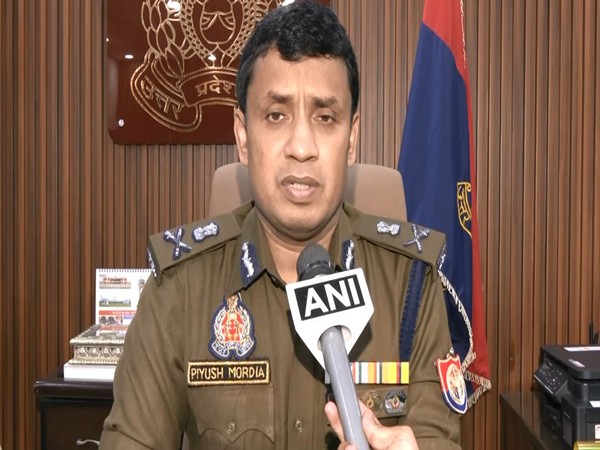ANI |
Updated: Dec 06, 2024 08:58 IST
Varanasi (Uttar Pradesh) [India], December 6 (ANI): Additional director general of police (ADG) Varanasi Zone, Piyush Mordia on Friday said that the Uttar Pradesh Police will ensure a peaceful conduct of all the programs on Babasaheb Ambedkar Mahaparinirvan Diwas.
Speaking to ANI, ADG Varanasi Zone, Mordia said, “We are ensuring a peaceful conduct of all the programs on Babasaheb Ambedkar Mahaparinirvan Diwas. We will make sure that nobody takes the law into their hands and that all rules and regulations are followed. We have made proper deployment of police in all the districts.”
He added that the police are also monitoring social media sites to ensure that nobody spreads rumours. If they do, we will lodge an FIR and take legal action against them.
“Police will continuously be on the rounds to monitor the situation. I assure you that every program on the 6th of Dec and after that will take place peacefully. All anti-social forces will be identified and proper legal action will be taken against them if they commit any kind of mischief…Social media monitoring teams are working 24/7 and are monitoring the social media sites making sure that nobody spreads rumours in case they do we will lodge an FIR and take legal action against them,” he added.
Mahaparinirvan Diwas is observed annually on December 6 to commemorate the death anniversary of Bharat Ratna Dr Bhimrao Ramji Ambedkar, fondly known as Babasaheb Ambedkar, the chief architect of the Indian Constitution.
Ambedkar, a revered leader, thinker, and reformer, dedicated his life to championing equality and eradicating caste-based discrimination, as per a Ministry of Social Justice & Empowerment release.
Mahaparinirvan Diwas 2024 commemorates the 69th death anniversary of Ambedkar.
“BR Ambedkar, born on April 14, 1891, in Mhow, Madhya Pradesh, dedicated his life to uplifting marginalized communities, especially Dalits, women, and labourers, who faced systemic social discrimination. A visionary reformer and tireless advocate of equality, Ambedkar recognized that caste oppression was fracturing the nation and sought transformative measures to address these deep-rooted injustices,” the release read.
Ambedkar proposed revolutionary steps to empower the oppressed, including reservations in education, employment, and politics. As a social reformer, he launched the newspaper Mooknayaka (Leader of the Silent) to amplify the voices of the downtrodden.
Ambedkar established the Bahishkrit Hitkarini Sabha (Outcastes Welfare Association) in 1923 to spread education, improve economic conditions, and address societal inequalities.
Ambedkar’s leadership in historic movements such as the Mahad March (1927) for access to public water and the temple entry movement at Kalaram Temple (1930) challenged caste hierarchies and priestly dominance.
“As Chairman of the Constitution Drafting Committee, Ambedkar played a pivotal role in crafting the Indian Constitution, presenting a draft in 1948 that was adopted in 1949 with minimal changes,” the release read.
Ambedkar emphasis on equality and justice ensured provisions that protected the rights of Scheduled Castes, Scheduled Tribes, and Other Backward Classes, laying the groundwork for an inclusive democracy. Dr BR Ambedkar was posthumously awarded the Bharat Ratna by the Government of India in the year 1990. (ANI)
